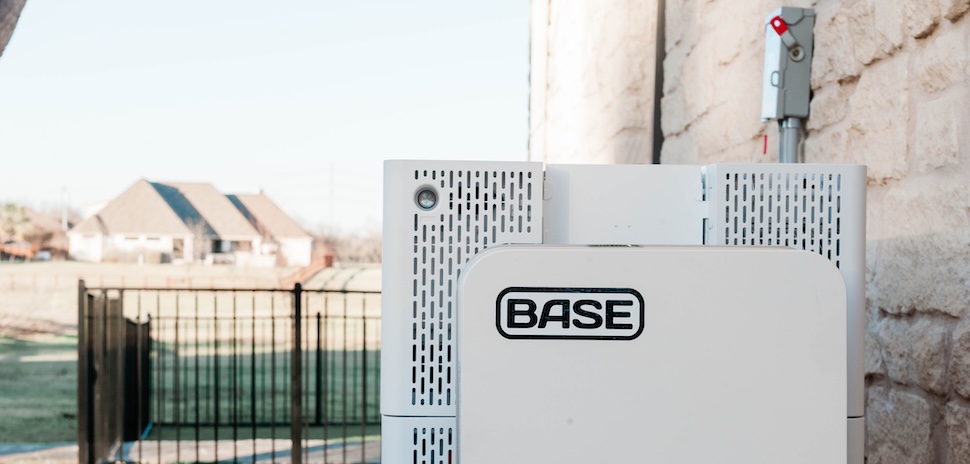$1 billion Series C round to expand distributed battery systems and build domestic manufacturing capacity.
New factory in Austin to anchor U.S. energy resilience and grid modernisation efforts.
Participation in Texas’s Aggregated Distributed Energy Resource program enables homeowners to feed power directly into the grid.
Austin startup aims to decentralize the grid
Base Power, a fast-growing energy technology company based in Austin, has raised $1 billion in Series C funding to accelerate the rollout of home battery systems across the United States. The round was led by venture firm Addition, with participation from Trust Ventures, Valor Equity Partners, Thrive Capital, Lightspeed, Andreessen Horowitz, Altimeter, StepStone, and Elad Gil, as well as new investors including Ribbit, CapitalG, Spark, BOND, Lowercarbon, Avenir, Glade Brook, Positive Sum, and 1789.
The funding positions Base Power among the most well-capitalized startups in the U.S. energy transition, reflecting investor confidence in distributed energy solutions as the grid faces mounting strain from extreme weather, ageing infrastructure, and rising electrification demand.
CEO and co-founder Zach Dell said the company is driven by a once-in-a-generation opportunity to reinvent how power is generated, stored, and shared. “The challenge ahead requires the best engineers and operators to solve it, and we’re scaling the team to make our abundant energy future a reality,” he said.
Distributed storage meets domestic manufacturing
Base Power’s business model revolves around leasing batteries directly to homeowners, offering reliable backup power while allowing participants to sell excess energy back to the grid. This decentralised system strengthens grid resilience and helps integrate renewable energy, addressing one of the core challenges of the U.S. clean energy transition: balancing supply and demand in real time.
As part of its expansion strategy, Base Power is developing its first energy storage and power electronics manufacturing facility at the former Austin American-Statesman printing press site in downtown Austin. The company plans to establish additional facilities to meet surging demand for distributed battery systems.
“The only way to add capacity to the grid is by physically deploying hardware,” said co-founder and COO Andrew Lopas. “We need to make that hardware here in the U.S., ourselves. This factory in Austin is our first, and we’re already planning our second.”
By investing in domestic production, Base Power is aligning with national efforts to reindustrialize the energy sector, reduce dependence on imported components, and strengthen supply chain resilience — a priority under the Biden administration’s clean energy and manufacturing policies.
Powering the grid from the ground up
Base Power recently qualified for Texas’s Aggregated Distributed Energy Resource (ADER) program, allowing it to aggregate thousands of home batteries and sell electricity directly into the state’s power market. The initiative could prove pivotal for grid operators struggling with growing demand volatility and the integration of intermittent renewables.
The company’s distributed model also complements recent federal initiatives encouraging grid-edge technologies, such as the Department of Energy’s Grid Resilience and Innovation Partnership (GRIP) program. With utilities and regulators seeking cost-effective ways to improve reliability, distributed batteries — collectively acting as “virtual power plants” — are emerging as a scalable alternative to large, centralized infrastructure.
For investors, the model offers exposure to one of the fastest-growing segments of the energy transition: behind-the-meter storage. BloombergNEF projects U.S. residential battery capacity could increase fivefold by 2030, driven by falling costs, rising solar adoption, and regional incentive programs.
RELATED ARTICLE: TotalEnergies Launches in Belgium Its Largest Battery Energy Storage Project in Europe
Rebuilding American energy capacity
Beyond its immediate commercial ambitions, Base Power’s approach speaks to a broader transformation in the U.S. energy economy — one that blends software, manufacturing, and local ownership to rebuild resilience from the household level up.
The company’s long-term vision extends beyond residential markets. Executives have indicated interest in expanding to small businesses, microgrids, and community-scale deployments, leveraging the same distributed platform to support energy equity and grid flexibility.
As Lopas put it, “We’re building the infrastructure, systems, tools, processes, supporting software, and team that’s reindustrialising America and reinventing the grid.”
If successful, Base Power’s model could help redefine how power is produced and consumed in the world’s largest economy — turning homes into active participants in the clean energy transition while strengthening the backbone of U.S. grid infrastructure.
Follow ESG News on LinkedIn

